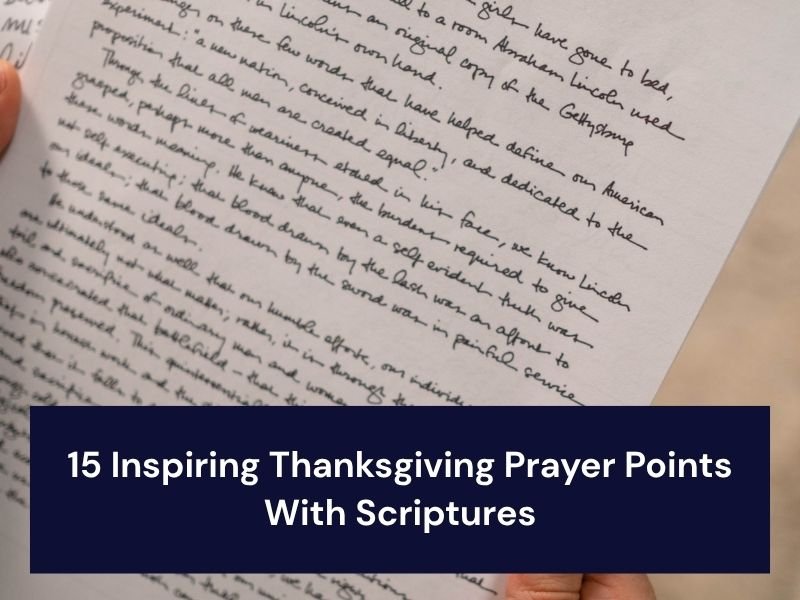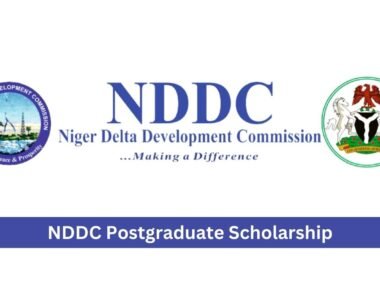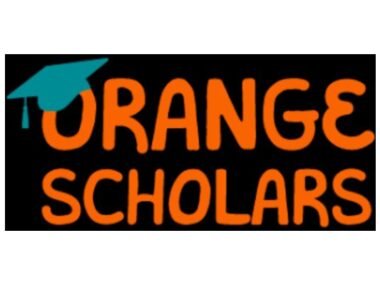Have you ever been asked to write a scholarship recommendation letter, or maybe needed one for your own application, and didn’t know where to start?
You’re not alone.
I remember when my younger cousin, Maya, was applying for a competitive leadership scholarship. She had the grades, the volunteer hours, the ambition, but what made her application truly shine was a heartfelt recommendation letter from her English teacher. That one page captured her passion, her growth, and her impact in a way that test scores never could. It wasn’t just a letter; it was a story that moved the selection committee, and yes, she got the scholarship.
Whether you’re a student hoping to request the right letter or a teacher wanting to write something more meaningful than a template, this guide will walk you through everything you need to know about writing or requesting a powerful scholarship recommendation letter in 2025.
What Makes a Scholarship Recommendation Letter Stand Out?
Ever wondered what makes a scholarship application shine beyond good grades and a moving personal essay? The answer, often, is a powerful recommendation letter, one that tells a deeper story about who you are, how hard you’ve worked, and why you deserve support.
I once helped a student named Grace apply for a highly competitive STEM scholarship. She had the GPA and passion, but her application stood out because of a recommendation letter from a former math professor. It painted a vivid picture of her problem-solving skills and resilience after facing academic setbacks. That letter didn’t just list her strengths, it brought them to life. And yes, she got the scholarship.
Whether you’re a student requesting a letter or a mentor writing one, this guide will walk you through everything you need to know about crafting a scholarship recommendation letter that truly makes a difference in 2025.
What Is a Scholarship Recommendation Letter?
A scholarship recommendation letter is a formal document written by someone who knows the applicant well, typically a teacher, professor, counsellor, or employer, to vouch for their character, academic achievements, and potential. It adds credibility to the student’s application and helps scholarship committees assess beyond numbers and test scores.
It’s not a job reference or a general character statement; it’s tailored to match the student’s goals and the specific scholarship they’re applying for.
Who Should Write the Letter?
Not everyone should write a recommendation letter. It’s important that the person writing the letter knows the student’s capabilities and potential well.
Ideal recommenders include:
-
Professors or teachers (especially those in the student’s major)
-
Academic advisors
-
Counselors
-
Employers or internship supervisors
-
Volunteer coordinators or mentors
Avoid: Friends, family members, or anyone who hasn’t directly observed the student in a learning or professional environment.
Key Elements of a Strong Recommendation Letter
A great scholarship letter isn’t just a list of adjectives, it’s a well-structured story that connects the student’s qualities to the goals of the scholarship. Here’s what to include:
-
Introduction: Who are you? What is your relationship to the student?
-
Academic or professional highlights: What did the student achieve under your guidance?
-
Character and personality traits: Is the student resilient, curious, or community-driven?
-
Specific examples: Did the student overcome obstacles? Lead a project? Help others succeed?
-
Tailored match: Why is this student a perfect fit for this scholarship?
-
Closing statement: A strong endorsement and offer to provide more information if needed
How to Format a Scholarship Recommendation Letter
While content is key, formatting also matters. Keep it clean and professional:
-
Use professional letterhead if available (especially for teachers or employers)
-
Keep it to one page (about 3–5 paragraphs)
-
Use a formal salutation (“To the Scholarship Committee,” is a safe default)
-
Save as PDF unless instructed otherwise
-
Avoid typos or overly casual language
Step-by-Step: How to Write a Scholarship Recommendation Letter
Step 1: Gather details about the student and the scholarship
Ask the student for their resume, GPA, activities, and what the scholarship is for.
Step 2: Craft a strong opening
Mention how you know the student and why you’re qualified to recommend them.
Step 3: Focus on 2–3 key strengths
Highlight what sets the student apart. Use anecdotes and observations.
Step 4: Make it specific
Instead of “John is a great student,” say “John’s research on renewable energy led to a class-wide discussion and received a commendation from our department chair.”
Step 5: End with a clear endorsement
State your confidence in their abilities and offer to be contacted for further information.
Editable Scholarship Recommendation Letter Template
Here’s a ready-to-use template you can customize:
[Your Name]
[Your Position]
[Your Institution or Organization]
[Email Address]
[Phone Number]
[Date]
To the Scholarship Committee,
I am honored to recommend [Student’s Full Name] for the [Name of Scholarship]. As [your relationship, e.g., their instructor for Intro to Chemistry], I have had the pleasure of watching [Student’s First Name] grow into a dedicated and thoughtful student.
During our time together, [Student’s Name] consistently demonstrated a remarkable ability to [mention specific qualities or achievements]. One example that stands out is when they [share a brief story].
What makes [Student’s Name] especially deserving of this scholarship is their [mention character trait, leadership, resilience, etc.]. I am confident that [he/she/they] will not only meet the expectations of this award but exceed them.
Please feel free to contact me if you need any additional information.
Sincerely,
[Your Full Name]
[Title]
[Signature, if printed]
Sample Recommendation Letters for Different Scenarios
Academic (STEM)
Highlights analytical skills, lab work, and commitment to science-related research.
Counselor (First-Gen Student)
Focuses on student’s personal growth, challenges overcome, and academic persistence.
Employer (Working Student)
Emphasizes work ethic, time management, and professionalism.
Volunteer Supervisor (Community Leader)
Spotlights leadership, empathy, and service impact.
Tips for Students: How to Get a Strong Letter
-
Ask early (2–4 weeks in advance)
-
Be clear about deadlines and requirements
-
Provide context (what the scholarship is for, your resume, and your goals)
-
Say thank you (send a thank-you note whether you win or not)
-
Ask different people for different scholarships (match the recommender with the scholarship’s focus)
Common Mistakes to Avoid
-
Choosing someone who doesn’t know you well
-
Using a generic “to whom it may concern” letter for every scholarship
-
Missing deadlines
-
Forgetting to follow up
-
Writing the letter yourself and asking someone to sign it (this is unethical and often detectable)
Who can give a recommendation letter for a scholarship?
Best People to Ask for a Scholarship Recommendation Letter
Let’s break down some of your best options, depending on your background and the kind of scholarship you’re applying for:
High School Teachers or College Professors
These are often the strongest choices, especially if they’ve taught you in subjects related to your scholarship. For example, if you’re applying for a STEM scholarship, a physics or math teacher is perfect. They can speak about your intellectual curiosity, class participation, and academic drive.
School Counselors or Academic Advisors
Counselors often have a broader view of your high school or college journey. They’re especially good at writing letters for students who’ve faced and overcome personal challenges or taken leadership roles in school activities.
Employers or Internship Supervisors
If you’ve worked during school, whether part-time, freelance, or as an intern, an employer can write a strong letter about your work ethic, time management, and real-world skills. This is a great option for career-based or adult learner scholarships.
Volunteer Coordinators or Community Leaders
Involved in community service, youth groups, or church leadership? Ask someone who has seen you serve others. These letters work well for character-based or service-focused scholarships.
Coaches or Club Sponsors
Coaches know how you lead, support a team, handle stress, and pursue excellence. If you’re applying for athletic or extracurricular-based scholarships, this is a strong pick.
Who Should NOT Write Your Recommendation Letter
Even though it might feel natural to ask a parent or family friend, scholarship committees want objective, third-party evaluations. Avoid asking:
-
Parents or relatives
-
Friends or classmates
-
Someone you’ve just met
-
People with impressive titles who barely know you
The best letters are not the fanciest—they’re the most genuine and specific. If someone can’t confidently write about your achievements, it’s better to look elsewhere.
How to Choose the Right Recommender for Different Scholarships
Not every scholarship is the same, and neither is every recommender. Choose based on the scholarship’s focus:
-
STEM scholarship? Choose a science or math teacher.
-
Leadership award? Go with a club sponsor or counsellor who’s seen you lead.
-
Community service grant? Ask a nonprofit or church leader who’s seen your heart in action.
-
Need-based scholarship? A counsellor who understands your background is ideal.
Matching the recommender to the scholarship type helps your application tell a unified, compelling story.
How to Ask Someone to Write a Scholarship Recommendation Letter
Here’s how to do it the right way, without awkwardness:
-
Ask in person if possible. If not, send a polite and clear email.
-
Be specific about what the scholarship is, when it’s due, and what it requires.
-
Share helpful materials like your resume, transcript, and personal statement.
-
Give them time, at least 2 to 3 weeks before the deadline.
FAQs
Can I submit more than one letter?
Yes! Many scholarships allow 2–3 letters.
Do all scholarships require a recommendation letter?
No, but many competitive ones do.
Should it be sealed or emailed?
Follow the scholarship’s instructions carefully, some require sealed envelopes, others prefer online uploads.
Can I reuse the same letter for different scholarships?
Possibly, but it’s better to tweak each letter to match the specific scholarship.
Conclusion
At its core, a scholarship recommendation letter is more than just a formal endorsement; it’s a window into a student’s true potential, values, and story. The best letters don’t just say a student is “hardworking” or “motivated”, they show it, with sincerity and specifics.
If you’re writing one, know that your words could unlock a door that changes someone’s life. And if you’re requesting one, don’t be shy about sharing your dreams; give your recommender the details they need to advocate for you fully.
In the end, it’s not about making it perfect, it’s about making it personal. Because sometimes, a single page of encouragement is all it takes to turn ambition into opportunity.







